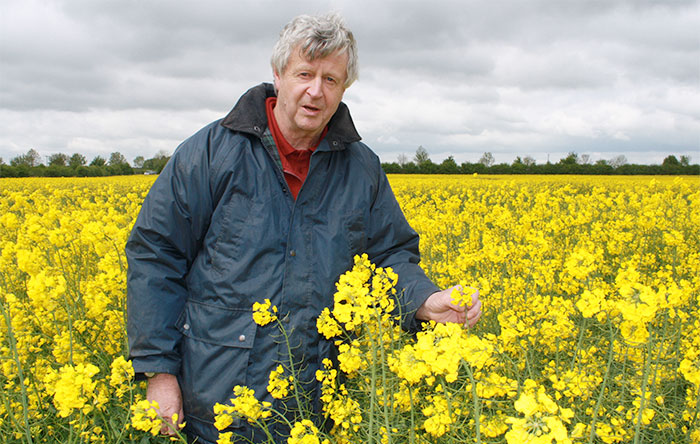
After many years of successful oilseed rape breeding on the continent, Limagrain UK has adopted a UK bespoke approach for its oilseed rape breeding programme. Now in its third year, the aim of this approach is to bring oilseed rape varieties to the market place that will suit UK conditions and markets - and Limagrain is the only UK based oilseed rape breeder to do so.
“For many years successful varieties that have been bred in both France and Germany have been brought over to the UK and have performed relatively well. However it is often the case that these varieties are taller and more suited to the harsher environmental conditions that are had on the continent,” says Dr Jo Bowman, senior oilseed rape breeder with Limagrain for over 30 years.
“In recognition of these differences our breeding programme based up at Rothwell in Lincolnshire, has focussed on producing varieties that are more suitable to the more variable climatic conditions of the UK, and are also better suited to the agronomical approach that we take with oilseed rape in this country.”
“For example France has serious phoma stem canker, which means that varieties must be bred with that resistant trait, while in Germany it is phoma and winter hardiness that is required.”
“It’s also worth remembering that growers in the UK tend to use double the seed rates used by their counterparts in France and Germany traditionally because of poor seedbeds and difficulty in getting the crop established. This then creates a different set of agronomy challenges when growing the resulting thicker, greener crop which usually has to be harvested in damp, miserable conditions.”
Dr Bowman underlines the importance of breeding consistent varieties, “that is varieties that yield over a range of seasons not varieties that yield well for a season or two and then drop off – that’s of little value to us or growers. In order to breed consistent varieties, disease resistance ratings and agronomic factors are key, and by getting these right yield is protected.”
“Producing consistent varieties is an important focus not just for our current but also for future breeding programmes. We have to think now about the needs and challenges of crop production for the future to ensure that in eight years we have varieties that respond to the challenges of the time.”
“It is important to recognise and understand that securing food supplies for the future is not just about increasing yields but having varieties that yield consistently and we are looking at how these yields can be produced and maintained in the context of possible further restrictions on fertiliser and fungicide use.”
Hybrid or conventional?
“Our breeding programme is balanced in favour of producing hybrids over conventional varieties by about 60%,” says Dr Bowman. “This reflects what is happening in the market place; the amount of hybrids grown in the UK has been steadily increasing for several years and in 2012 about 65% of the oilseed rapeseed purchased in the UK was of hybrid varieties.”
“Today’s hybrids are shorter and easier to harvest and they often still have a yield advantage. This is particularly noticeable when sown late or in less favourable conditions when their autumn and early spring vigour leads to quicker establishment, greater resilience to pigeon damage in the autumn and more rapid spring growth. “
“With an early onset of colder weather and a shorter growing season hybrid varieties are especially favoured in the north of England and in Scotland.”
“Our variety Artoga fits this category very well producing comparable yields to Excalibur, with outstanding early vigour producing a large, healthy plant going into winter, alongside good pod shatter resistance and early maturity. “
“Conventional varieties have tended to be shorter strawed than hybrids leading to a faster and cheaper harvest. The seed is usually less expensive and the sowing rate a little higher. In the HGCA trials conventional types have frequently yielded as well as or better than their hybrid counterparts and on farm experience often suggests that the yield advantage is slight at best.”
“However, there is always a variety that breaks the mould such as the top yielding variety on the northern 2012-2013 HGCA list, Anastasia, that is a conventional. This variety yields at least 1% higher than any of the hybrids on the list, producing 106% over control in fungicide treated trials. This combined with its strong agronomic characteristics make it a very attractive variety for the whole northern region -that is north of the Humber Bridge not Scotch Corner.”
